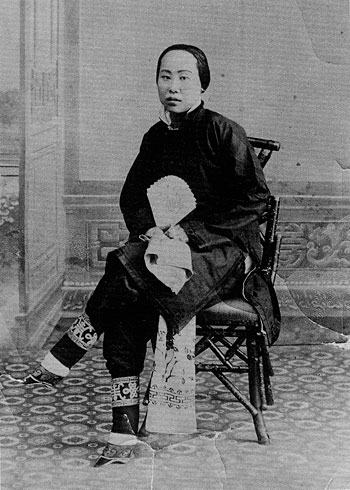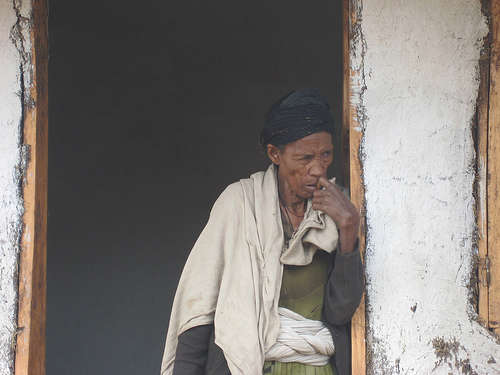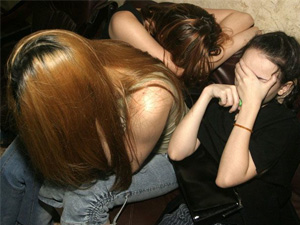Only a"Worthless Daughter"?
 “Thank you, Mother, for raising a worthless daughter.”These words, part of a lament of a bride going to meet her husband for the first time, summed up the experience of women in China in the 1800’s, according to Snow Flower and the Secret Fan. In this book Lisa See brings to light the reality of life for a female in that society: No value, no rights, raised for a husband’s family, enduring the years of footbinding torture and subsequent crippling, totally dependent on the desires of her parents/brothers/husband/mother-in-law. She had no purpose—except to bear a son-- and no hope.These words, sadly, have been echoed across countless generations and cultures. In many places a woman has a place
“Thank you, Mother, for raising a worthless daughter.”These words, part of a lament of a bride going to meet her husband for the first time, summed up the experience of women in China in the 1800’s, according to Snow Flower and the Secret Fan. In this book Lisa See brings to light the reality of life for a female in that society: No value, no rights, raised for a husband’s family, enduring the years of footbinding torture and subsequent crippling, totally dependent on the desires of her parents/brothers/husband/mother-in-law. She had no purpose—except to bear a son-- and no hope.These words, sadly, have been echoed across countless generations and cultures. In many places a woman has a place in life only if she becomes the mother of a son. In some African nations female genital cutting is still practiced, creating unimagined agony for preteen girls and sentencing them to a lifetime of pain. In Southeast Asia and many other places children are sold—often by their poverty-stricken parents—as sex slaves.
in life only if she becomes the mother of a son. In some African nations female genital cutting is still practiced, creating unimagined agony for preteen girls and sentencing them to a lifetime of pain. In Southeast Asia and many other places children are sold—often by their poverty-stricken parents—as sex slaves.
Frightening Statistics
In Half the Sky, Pulitzer Prize winning authors Nicholas Kristof and Sheryl WuDunn horrify us with statistics like this:“Thirty-nine thousand baby girls die annually in China because parents don’t give them the same medical care and attention that boys receive.”“In India, a ‘bride burning’—to punish a woman for an inadequate dowry or to eliminate her so a man can remarry—takes place approximately once every two hours.”They go on to talk of kerosene dousing and acid burning, of 2 million girls disappearing every year because of gender discrimination. One journal stated, “Women are not dying because of untreatable diseases. They are dying because societies have yet to make the decision that their lives are worth saving.”
Centuries of 'Worthless Daughters'
 This is not new. It didn’t begin 200 years ago in China. It has gone on for centuries: Mothers raise “worthless daughters.” When I hear, see, think about such things, I can barely contain my emotions. Horror, anger, frustration, indignation. How can this be? How can it continue? We must do something!Someone has done something. One person has made a difference. His name is Jesus. Wherever the message of Jesus has been received, the status of woman has been raised. In the film Magdalena, a telling of the story of Jesus by Mary Magdalene, I was overwhelmed by the tenderness with which Jesus addressed women—in a culture where a man would not even acknowledge a woman.Yet even in those lands where Jesus has gone, where things are not as bad as they once were, many women still believe they are worthless, or at least worth less. Even today, women struggle to grasp their value. To understand that God has a given them a high calling.
This is not new. It didn’t begin 200 years ago in China. It has gone on for centuries: Mothers raise “worthless daughters.” When I hear, see, think about such things, I can barely contain my emotions. Horror, anger, frustration, indignation. How can this be? How can it continue? We must do something!Someone has done something. One person has made a difference. His name is Jesus. Wherever the message of Jesus has been received, the status of woman has been raised. In the film Magdalena, a telling of the story of Jesus by Mary Magdalene, I was overwhelmed by the tenderness with which Jesus addressed women—in a culture where a man would not even acknowledge a woman.Yet even in those lands where Jesus has gone, where things are not as bad as they once were, many women still believe they are worthless, or at least worth less. Even today, women struggle to grasp their value. To understand that God has a given them a high calling.
Desired and Treasured
Jesus calls women many things, but never worthless. He calls each one: Desired. Treasured. His joy. A reflection of Him. An ezer—strong warrior helper. For a purpose. To be His partner in building His kingdom. He assures us the Father had grand intentions in creating women.So why do so many women still suffer physically and emotionally, marginalized and meaningless, not experiencing those good purposes for which God created them?
Who Will Do Something?
I find my heart crying, Who will do something? The Lord has clearly responded: You are doing something—the most important something. You and many sisters are introducing women to that one who values and treasures them, who made them with tender love and powerful intentions and high calling. When they know Jesus, they can begin to discover that they are not worthless.And some among us are/will be the ones who will take up the cry: We must do something. We must raise our voices, get involved, right wrongs, alleviate suffering. We must work to set our sisters free, from slavery, from poverty, from torture, from abuse, from worthlessness.Together, we and they will discover that we are of indescribable worth.(A starting place could be to read Half the Sky, which is filled with many disturbing stories of atrocities and wrongs, but also tells of hopeful solutions and actions that can turn things around. And then read Half the Church, Carolyn Custis James’ call to the church to stand in the gap, to proclaim by word and action that women matter and women can make a difference.)C2011 Judy Douglass
